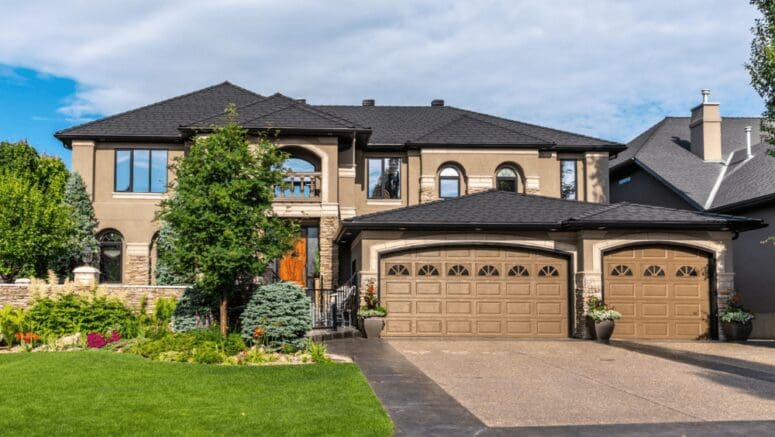16 Loan Programs for Low-income and Minority Homebuyers
- Published on
- 13 min read
-
 Dwayne Vega, Contributing AuthorClose
Dwayne Vega, Contributing AuthorClose Dwayne Vega Contributing Author
Dwayne Vega Contributing AuthorDwayne Vega is a freelance writer with a specialization in real estate content. He works closely with B2C and B2B companies providing useful and engaging content that converts viewers into clients. When he isn’t writing for work, you can find him reading and writing for his ongoing MFA in Creative Writing.
-
 Richard Haddad, Executive EditorClose
Richard Haddad, Executive EditorClose Richard Haddad Executive Editor
Richard Haddad Executive EditorRichard Haddad is the executive editor of HomeLight.com. He works with an experienced content team that oversees the company’s blog featuring in-depth articles about the home buying and selling process, homeownership news, home care and design tips, and related real estate trends. Previously, he served as an editor and content producer for World Company, Gannett, and Western News & Info, where he also served as news director and director of internet operations.
Homeownership has been one of the most common and reliable ways for families to build intergenerational wealth. It’s often called The American Dream. Unfortunately, discriminatory practices against minorities, rising interest rates, and soaring housing prices have placed roadblocks on the path of many would-be homeowners.
Despite ongoing labor market rebalancing and employers’ efforts to compress wage growth, the Employment Cost Index (ECI) rose by 0.9% in Q4 2024 — bringing the total compensation cost increase to 3.8% for 2024. Wages and salaries increased by 0.9% and benefit costs by 0.8% in Q4 2024.
According to EY-Parthenon’s Q4 2024 Employment Cost Index report, a rebalanced labor market will result in ECI compensation and private sector wage growth converging toward 3.5% over the next 12 months. This is below the pace consistent with the Fed’s 2% inflation. They also expect the Fed will adopt an extremely reactive approach amid elevated policy uncertainty, with policymakers relying heavily on inflation and employment data to inform their decisions.
The all-items Consumer Price Index (CPI) for food, which measures overall inflation, rose by 0.4% from January 2025 to February 2025 and increased by 2.8% compared to February 2024. The CPI for all food items went up by 0.2% from January 2025 to February 2025, with food prices being 2.6% higher than in February 2024. So it’s understandable why some home shoppers have placed their plans on hold.
However, there is help out there. We’ve gathered information about assistance programs and their various options, from loans to down payment assistance. Here, you’ll find an abundance of links and expert tips to get started on your homeownership journey.
Overcoming racially restrictive policies and practices
Discriminatory policies and practices have denied — and continue to deny — communities of color access to homeownership. For instance:
- Cities abused urban renewal policies and eminent domain to displace and destroy communities of color disproportionately.
- “Steering” and “redlining” crushed the dreams of marginalized communities, especially Black families.
- On average, homes are appraised 21% to 23% lower in majority Black neighborhoods.
We’re still feeling the effects of those discriminatory practices today. Those policies made and continue to make it challenging for underprivileged communities to own homes and build wealth.
According to a report by the National Association of Realtors (NAR), minority groups increased their homeownership rates in recent years despite persistently weak affordability conditions. The Black homeownership rate saw a modest increase, reaching 44.7%. Also, among homeowners, data reveals a pattern of higher housing burdens among Black and Hispanic homeowners compared to their white counterparts. In New Hampshire and Hawaii, more than 50% of Black homeowners spend more than 30% of their income on housing, compared to 32% of white homeowners in Hawaii and 25% of homeowners in New Hampshire.
The “Snapshot of Race and Home Buying in America” report highlights similar racial disparities in homeownership:
| Race/Ethnicity | Homeownership rate |
| Black | 44.7% |
| Hispanic | 51% |
| Asian | 63.4% |
| White | 72.4% |
While the situation seems dire for low-income families or families of color, there is help.
“The good news is a lot of grant money is floating around right now. So it’s a great time to be a first-time homebuyer,” explains New Jersey real estate agent Chiquita Pittman, a first-time homebuyer specialist with 27 years of experience.
There are several different options out there; the kicker is that with each lender, different programs will be available. You’ll want to reach out to several different lenders, and that’s where it’s beneficial to have a Realtor® that is super knowledgeable about what programs are out there.
Read on: We’ll provide resource links and expert tips to help low-income and non-white homebuyers.
Do you really need a 20% down payment to buy a house?
No, you don’t need a 20% down payment to buy a house.
The myth persists because potential homebuyers used to have to put that much money down. The real problem with the myth is that it acts as a barrier to entry for many people stuck on the rent treadmill.
The reality: The typical down payment for first-time buyers was 9% in 2024 compared to 23% for repeat buyers, according to NAR.
Assistance programs and alternative loans are available to help get low-income buyers and buyers of color off the rent treadmill and into homeownership.
Learn more: Check out HomeLight’s Home Affordability and Down Payment calculators.
What kind of assistance programs or alternative loans are available?
The most common forms of assistance or alternative loans fall into the following broad categories:
- Down payment assistance programs
- Government-backed loans
- Low-income loans
Down payment assistance program
Down payment assistance programs help first-time homebuyers who need cash for a down payment. Closing the homeownership gap is integral to enabling communities of color to also close the wealth gap.
State, county, and city down payment assistance programs exist as well. Typically, the programs are for first-time homebuyers. One of the best ways to find a down payment assistance program near you is to consult a top real estate agent.
Another way is to search the internet for “down payment assistance programs + [your location].” A cursory search should show you the programs that may benefit you.
Government-backed loans
There are government-backed loan options for low-income households. You may be eligible for one of the following programs:
FHA loans
The Federal Housing Administration insures FHA loans with qualified lenders who will provide the following:
- Lower down payments (3.5% to 10%, depending on credit score)
- Low closing costs
- Relaxed credit score requirements (500 to 620)
You may have to pay private mortgage insurance (PMI) as a condition of an FHA loan.
An FHA 203(K) loan insures mortgages for purchasing and rehabbing a home. The 203(K) loan is best for buyers interested in buying a fixer-upper.
Good Neighbor Next Door Program
The U.S. Department of Housing and Urban Development has the Good Neighbor Next Door Program, designed for public servants willing to live in a single-family home in a revitalization area. To qualify, you need to have one of the following careers:
- Law enforcement officer
- Teacher
- Firefighter
- Emergency medical technician
Qualified buyers can receive a 50% discount on the home’s list price. The caveat is that the house has to come from HUD’s listing, and the buyer must commit to living in the home for 36 months.
USDA loans
The U.S. Department of Agriculture’s Single Family Housing Guaranteed Loan Program assists lenders in providing low- and moderate-income household loans for homes in eligible rural areas. These loans do not have a down payment requirement, but applicants must meet the following criteria:
- Cannot exceed 115% of the median household income for the area
- Must live in the house as the primary resident
- Be a U.S. citizen, non-citizen national, or qualified alien
VA loans
VA loans are for military service members, veterans, and eligible surviving spouses. VA guarantees a portion of the loan, and lenders provide more favorable terms. VA loans:
- Require no down payment
- Have low-interest rates
- Limit closing costs
- Eliminate private mortgage insurance (PMI)
Low-income loans
Both Fannie Mae and Freddie Mac have programs for low-income homebuyers. These loans are ideal for low-income buyers with a relatively low credit score and insufficient cash for a large down payment.
Fannie Mae HomeReady loan
The HomeReady Mortgage may require homeowners to take homeownership education if they are a first-time homebuyer. The HomeReady Mortgage enables homebuyers to make a down payment as low as 3% and has flexible funding and income rules.
Freddie Mac Home Possible loan
The Freddie Mac Home Possible Mortgage helps low-income buyers own a home. The down payment is as little as 3%, the income limit is 80% of the Area Median Income, and mortgage insurance can be canceled after the loan balance is 80% or less of the home’s appraised value.
How can I find home-buying programs in my area?
As a potential homebuyer, several programs are available to you for assistance. Below is a list of resources that may assist in finding helpful programs:
- Federal Housing Finance Agency (FHFA)
- National Association of Real Estate Brokers: Two Million New Black Homeowners Program (2Mn5)
- National Housing Conference: 3 by 30 initiative
- The U.S. Department of Housing and Urban Development (HUD) provides a database of programs by state
- State Housing Finance Agency: Select your state to find participating lenders
- USDA Multifamily Housing Loans
- Do an internet search for home-buying programs in your city or county; here are examples for Los Angeles, Topeka, and Charlotte.
Which national banks offer home-buying assistance programs?
The following national banks provide programs for low-income buyers and buyers of color. Each bank will have a brief overview of the program offered.
Bank of America
Bank of America provides the Community Affordable Loan Solution in designated Black and Latino markets. The program allows eligible people to obtain an affordable home loan.
In addition, Bank of America provides the following affordable housing programs:
- America’s Home Grant provides up to a $7,500 lender credit for closing and other home purchase costs.
- Down Payment Grant of up to $10,000 in down payment assistance in specific markets.
Citi
Citi offers their HomeRun Mortgage program. The benefits include a down payment as low as 3%, competitive interest rates, and no mortgage insurance requirement.
JPMorgan Chase
JPMorgan Chase has committed $30 billion for Black, Hispanic, and Latino households, including the Chase DreaMaker Mortgage. The mortgage offers up to a $7,500 grant, a 3% down payment, and flexible credit guidelines.
Legacy Home Loans
Legacy Home is a Black-owned nationwide mortgage banking company created to help Black buyers purchase a home. The Closing the Gap loan program is piloted in six metro areas and has a 1% down payment and closing cost assistance. For more information or to see if you qualify, visit their website.
OneUnited Bank
OneUnited is the country’s first Black internet bank and the largest Black-owned bank. The Unity Home Loan offers low interest rates and low down payment requirements.
Additionally, OneUnited participates in and is a preferred lender for the following programs:
- ONE Mortgage Program in Boston
- The Boston Home Center
- The Miami-Dade Economic Advocacy Trust (MDEAT) Program
TD Bank
TD Bank has several affordable mortgage programs for low-income homebuyers. Each program has down payments as low as 3% and a minimum credit score of 620.
- TD Right Step Mortgage has no income limits for properties in low-income census tracts and no borrower-paid mortgage insurance.
- TD Home Access Mortgage: A $10,000 Lender Credit is available (for purchase only; max cashback of $2,000), and no borrower-paid mortgage insurance
U.S. Bank
U.S. Bank invested in a program called the U.S. Bank Access Commitment. It partnered with national and local nonprofits to increase homeownership education and access for racially diverse communities. Their U.S. Bank Access Home Loan offers:
- Down payments as low as 3%
- Up to $5,000 lender credit
- A fixed interest rate for the life of the loan
- Assistance funds
- Mortgage insurance paid by U.S. Bank
They also have home-buying resources that connect you with home-buying programs in their markets.
Wells Fargo
Wells Fargo is focusing on helping communities of color, with a $210 million investment and private-public partnerships with the National Urban League and UnidosUS to help Black and Hispanic communities purchase homes via “Wealth Opportunities Restored through Homeownership” (WORTH) Grants. The shift in focus is part of a strategic realignment for the bank.
Tips when applying for down payment assistance or a loan program
Understand what’s in the loan agreement
Some loans (Fannie Mae and Freddie Mac) have strict income limits and down payment requirements. Others (FHA and USDA) require you to pay for mortgage insurance, which increases the cost of your loan. When applying for these programs, you need to know what’s in the fine print.
Build up your credit score
Most down payment assistance or loan programs are available to people with low credit scores.
However, you can get better loan terms with an improved credit score. Here are some strategies you can use to build your credit score in anticipation of purchasing a home:
- Pay your credit cards
- Become an authorized user on a relative or friend’s credit card account to benefit from their credit history
- Pay your bills on time
- Dispute credit report errors
- Use a secured credit card
- Get credit for paying rent and utilities by using tools like Experian Boost
Learn more: Visit HomeLight’s resource page, Credit score guidance for homebuyers.
Lower your debt-to-income ratio
You can lower your debt-to-income ratio in one of two ways: increase your income or pay off your debts. If you have an additional flow of income via a side hustle or some other source, you can save money for a down payment and closing costs. Additionally, you can use the extra income to pay down your debt (prioritizing credit card debt) and lower your debt-to-income ratio.
Find a cosigner
Both conventional and government-backed loan programs allow you to use a cosigner. A cosigner enables you to add a person’s income to your own to qualify for a mortgage.
Partner with an experienced expert
Find a proven top agent who knows your local housing market and can navigate the many local and national down payment assistance and loan programs available to buyers of color and low-income buyers.
Q&A: More expert insights for low-income and minority homebuyers
What is the most accessible home loan?
It depends. The most important thing is to educate yourself. “Different mortgage companies have different grants available, so it’s always good to do your research and to work with an agent that’s knowledgeable,” Pittman says.
Carlton agrees that knowledge about loans and assistance programs is essential. “Explore all your options with multiple lenders. But you’ve also got to get with a Realtor® whose job is a full commitment to you, the client, and helping find any advantage possible,” Carlton says.
How much income is needed to get a suitable mortgage?
There is no magic number for your income to get a suitable mortgage. “When looking at a mortgage, you must factor in the purchase price, taxes, and other fees. No two homes are the same,” Carlton says.
Instead, get preapproval from a mortgage lender to determine how much income is needed to get a suitable mortgage. The lender will evaluate your financial situation, debt-to-income ratio, credit score, and down payment without going through an entire loan application.
How can partnering with a top expert help the homebuying process?
A top real estate agent can find programs for you, ask the right questions, and guide you to homeownership. “Buying and selling a home is very emotional, and my job is to make it as easy as possible and to educate my clients,” Pittman says. “Knowledge makes the entire process easier and limits the stress of the unknown.”
Conclusion: Clearing more paths to homeownership
Homeownership is the most common way for individuals and families to realize The American Dream. Discriminatory policies have stymied the dream of homeownership and intergenerational wealth for communities of color. There are an abundance of down payment assistance programs and alternative loans available to help combat the historical failings of governmental agencies and the real estate industry.
Trailblazing a new path away from the rooted problem requires dedicated solutions from policymakers and real estate industry professionals. Many stakeholders at the national and local level in the housing sector can close the homeownership gap and set us on course to be a more equitable society. Getting us on that course to equity and justice begins with equal access to opportunity.
A top real estate agent is a critical component in providing that access. They can research and present the best and most impactful assistance programs from private lenders and public sources. HomeLight can connect you to proven agents in your market. We analyze more than 27 million transactions and thousands of reviews so you can get started on your path to buying a home today.
Editor’s note: This article is for educational purposes only, not financial, tax, or legal advice. Individual program details can change. Please visit the agency or company website for the most up-to-date information on program requirements and qualifications.
Header Image Source: (jewhyte / Depositphotos)
- "Employment Cost Index Q1 2024," EY Parthenon (April 2024)
- "Food Price Outlook, 2025," USDA Economic Research Service (April 2025)
- "Snapshot of Race and Home Buying in America," National Association of Realtors (2025)
- "Highlights From the Profile of Home Buyers and Sellers," National Association of Realtors (November 2025)






